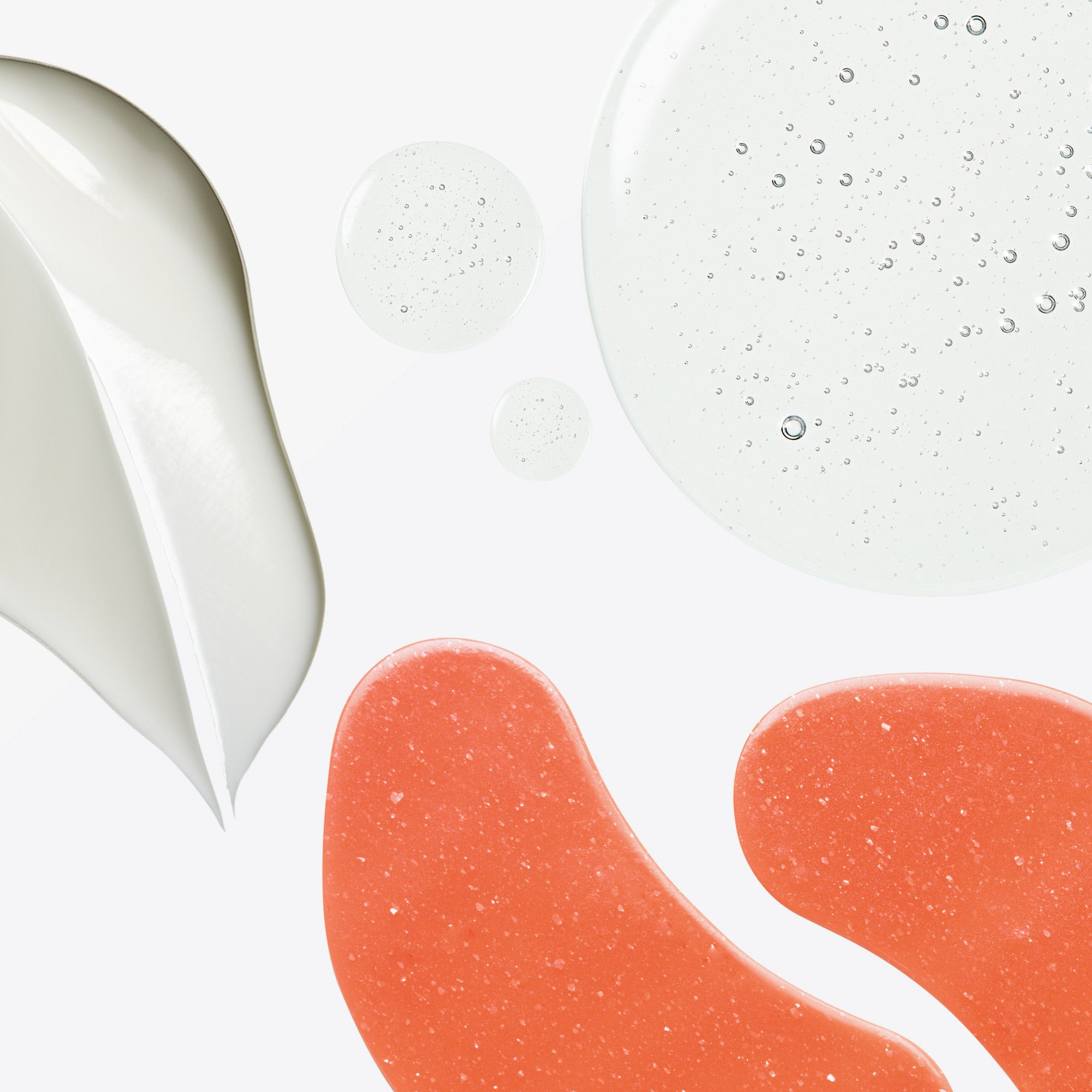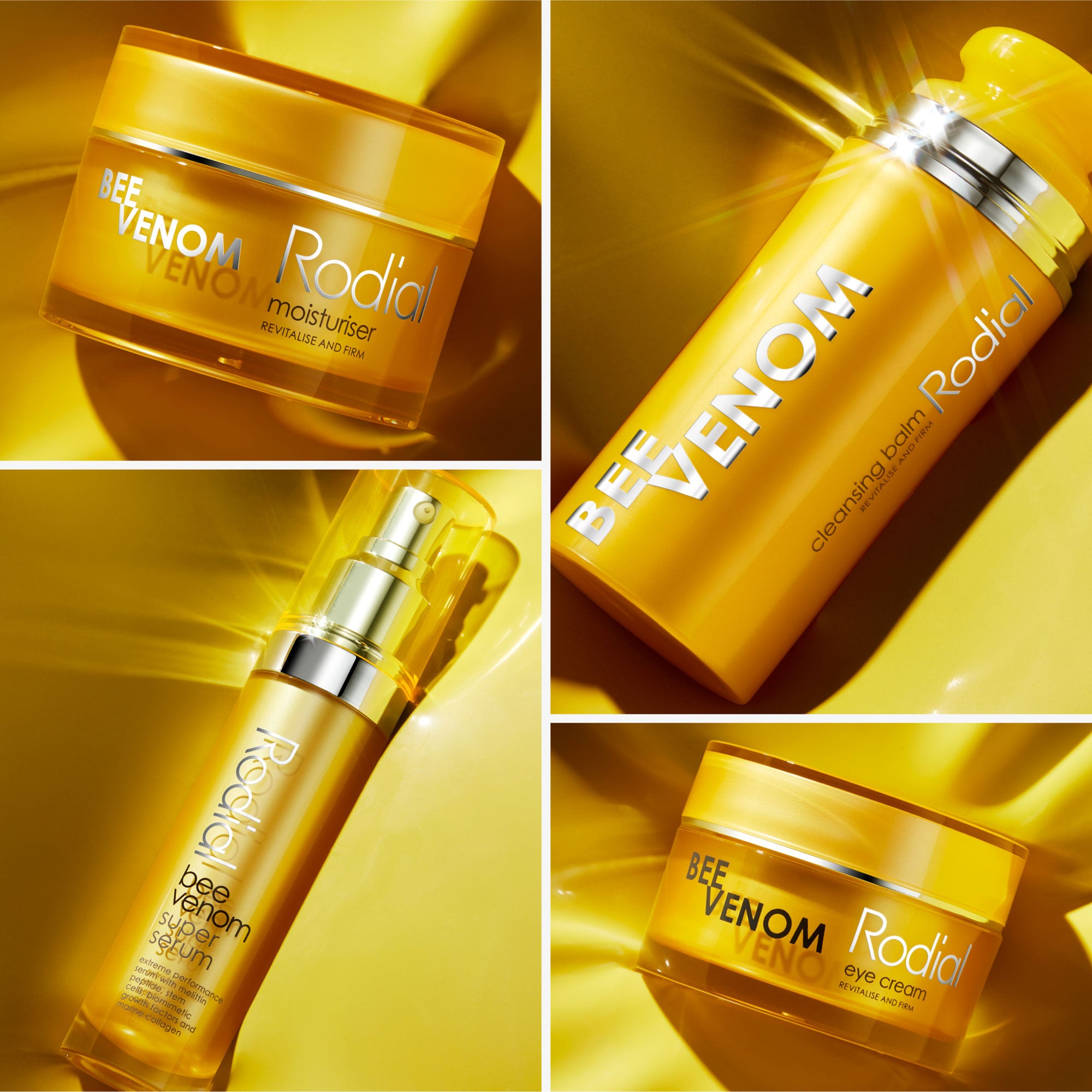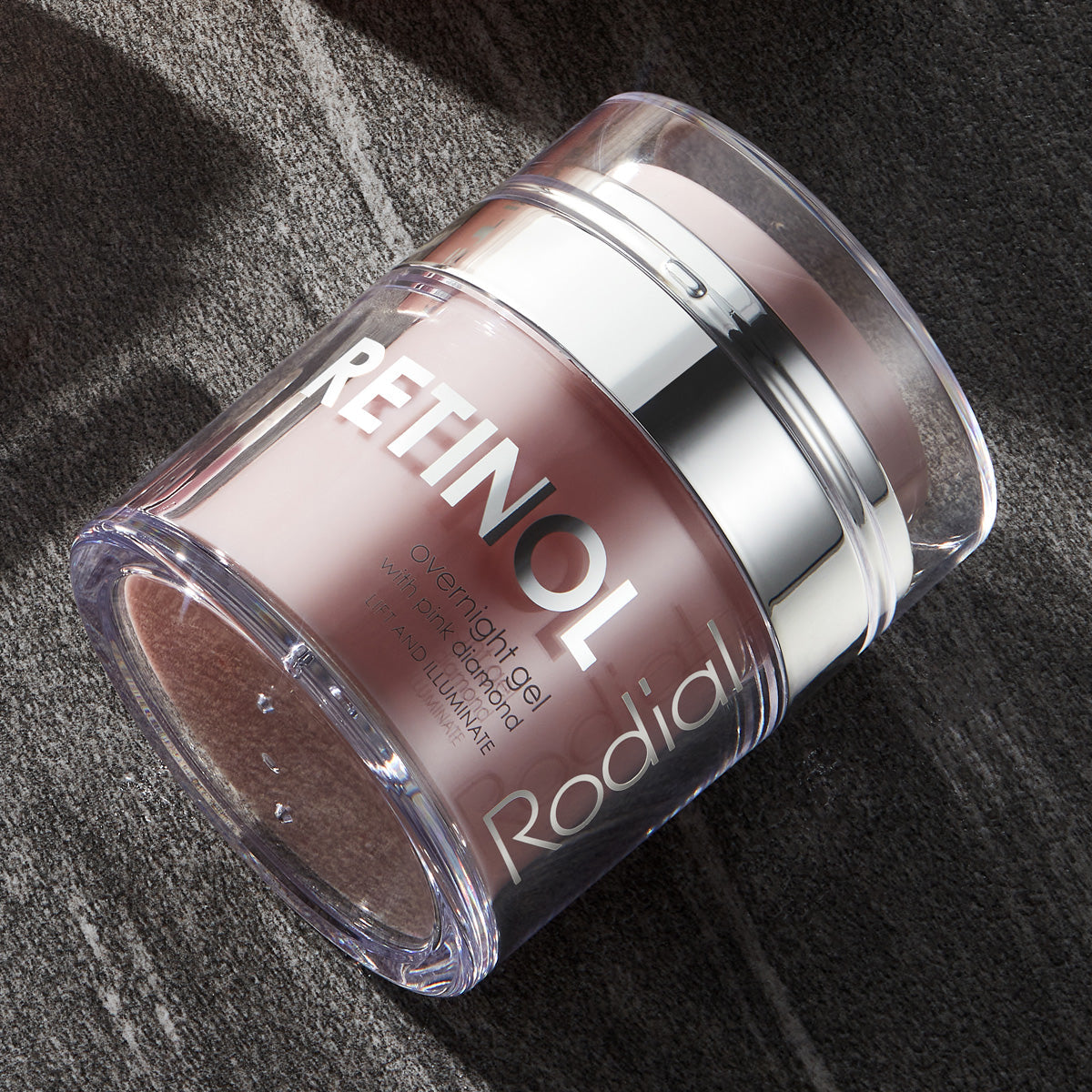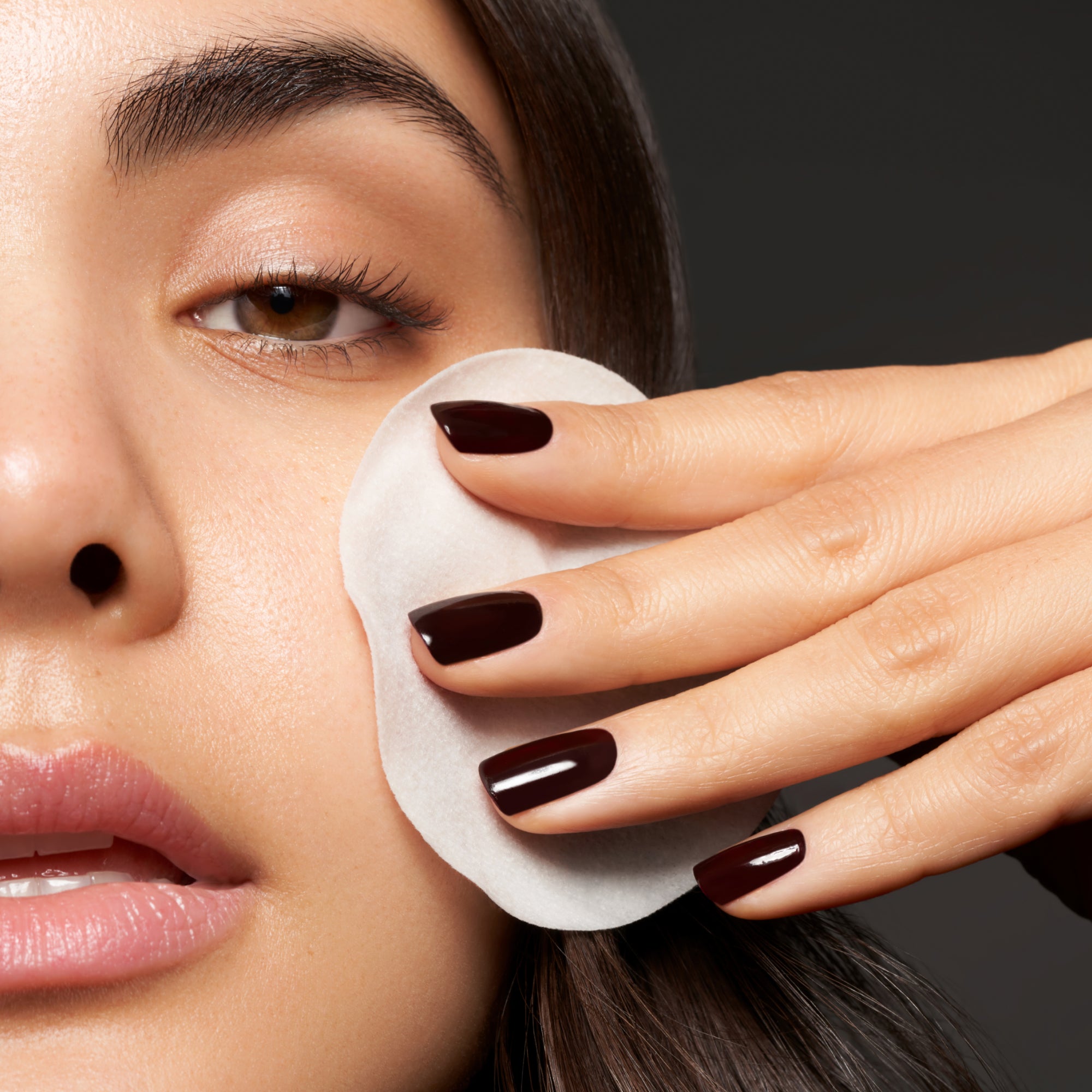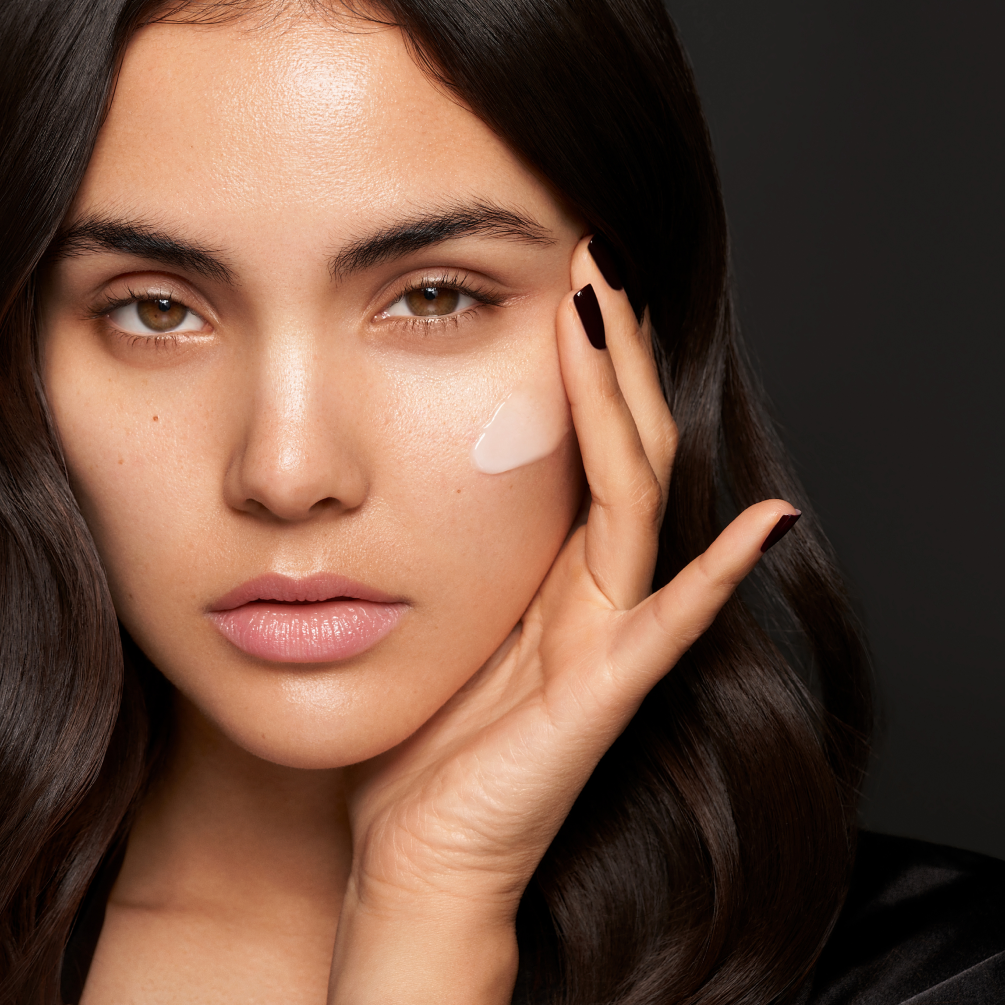It’s one of skincare’s most common and sought after ingredients. It has the power to give your skin that irresistible glow many of us crave, as well as to keep skin healthy looking, hydrated and plump. Hyaluronic acid is skincare’s super ingredient and one that every skin type can use – read on to find out how it works and what it can do for your skin.
What is hyaluronic acid?
Hyaluronic acid is a substance that is naturally produced by bodies. It keeps our tissue lubricated and is also found in our eyes and joints. Like collagen, it’s also responsible for giving our skin that youthful, plump appearance that depletes as we age. It is known as a humectant, which means it adds moisture to the skin by drawing it in from the surrounding environment, and can hold up to 1,000 times its weight in water.
However, hyaluronic acid levels decrease as we age and if you have dry or sensitive skin, your skin will need extra hydration to keep its protective skin barrier healthy. Furthermore, sometimes our skin loses moisture: this can be caused by a range of factors including environment (eg. pollution), overexposure to sun, cold weather, indoor heating and air conditioning (which dehydrates skin) or overuse of exfoliants or acids (which strips your skin of its natural oils and moisture). If your skin starts to lose moisture, you’ll often experience symptoms like dryness, tightness, flakiness, soreness and stinging – this means your skin barrier has become damaged and you need to get moisture back into it ASAP.
What does hyaluronic acid do to skin?
Hyaluronic acid has so many benefits for skin. Crucially, it reduces dryness and dehydration, which if left untreated can lead to a range of concerns, like a damaged skin barrier, and can reduce the appearance of fine lines and wrinkles thanks to its ability to plump skin. Humectant moisturisers like hyaluronic acid are also super lightweight, so work for all skin types, and don’t feel heavy or greasy on oily skin types. They are also a great option for anyone just starting out with their skincare routine.
What are the cons of hyaluronic acid on skin?
Put simply, there aren’t really any disadvantages of using hyaluronic acid. It doesn’t have any side effects on its own, although if a product containing HA contains a lot of preservatives (to make the product last longer), irritation can sometimes occur – but as a result of the preservatives rather than the hyaluronic acid. So, like with all products, we always recommending patch testing before first use.
At what age should you start using hyaluronic acid?
Another amazing benefit of hyaluronic acid is that you can start using it at any age. However, our natural level of hyaluronic acid starts to deplete around age 20 and halves by around age 50*, so it’s a good idea to start using it as early as you can in your skincare routine.
What should I pair with hyaluronic acid?
There are so many product types that contain hyaluronic acid, but it’s most common in serums, concentrates and moisturisers as well as cleansers, so it’s easy to incorporate into your skincare routine. Our Dragon’s Blood range contains all four of these product types and pairs well with other actives in our ranges.
What’s more, hyaluronic acid pairs well with every ingredient you can think of and even bolsters the effects of other acids by helping seal in active ingredients with a layer of hydration. Using hyaluronic acid before and after actives like retinol, glycolic acid and vitamin C also helps keep skin soothed and minimises the chances of irritation.
Is it OK to use hyaluronic acid every day?
Yes! Hyaluronic acid is one of the only ingredients you can use morning and night, every day – there is no such thing as too much hydration when it comes to skin, especially when you think about how much your skin goes through each day (transport, in and out of air conditioning, pollution and so on). For maximum benefits and to ensure your skin is as hydrated as possible, it’s advisable to use at least twice a day every day as part of your routine, whether that’s as a cleanser, a serum or a moisturiser.
Do you put hyaluronic acid on before or after moisturiser?
If your hyaluronic acid product is in a cleanser, this is obviously used as the first step in your routine before everything else. Concentrates and/or serums come afterwards, followed by your moisturiser. So, if you’re using hyaluronic acid as a concentrate or serum, put this on before your moisturiser.
Rodial’s hyaluronic acid heroes
Complete four-step routine that can be used morning and evening and is powered by hyaluronic acid and dragon’s blood, which work synergistically to hydrate and soothe skin.
Versatile hybrid serum-gel to hydrate, soothe and sculpt skin. Can be used as a serum after cleansing and before moisturiser, as a lightweight moisturiser in summer or mixed with foundation for a dewy glow.
A complete skin SOS kit with three multi-benefit, winter skin must-have heroes from our iconic Dragon’s Blood range, packed full of hydrating hyaluronic acid and squalene and soothing dragon’s blood.
Hybrid SPF-moisturiser that provides long-lasting hydration as well as UV protection, with niacinamide to support the skin barrier as well as soothing dragon’s blood.
A nighttime wonder cream with hyaluronic acid, shea butter and squalane to hydrate and restore skin as well as slow-release retinol for anti-ageing benefits.
* Journal of the American Academy of Dermatology, May 2016: https://www.jaad.org/article/S0190-9622%2816%2900202-4/fulltext#:~:text=The%20skin's%20hyaluronic%20acid%20(HA,of%20fine%20lines%20and%20wrinkles.
Should you use bee venom in your skincare routine?
What is Retinol and Why Should I Start Using It?
Rodial's skincare experts answer your retinol questions including what is retinol? When should I start using it? and how to use it for best results!
